Lives in Limbo:
A year after the EU deal to slow refugee influx, an uncertain future
THESSALONIKI, Greece — The deal brokered by the EU and Turkey last year has succeeded in slowing the tide of migrants flowing into Greece from across the Aegean Sea. But thousands of people who arrived after the March 20, 2016 cutoff remain stranded because of it.
The agreement’s repercussions continue to highlight the vastly different treatment experienced by the approximately 50,000 refugees still in Greece, even those belonging to the same nationality or family.
Hanifa Hussein and her married, adult daughter fled Idlib, Syria and arrived together in Greece in August 2016. Hussein is now up for relocation to the EU through her husband, who arrived a month before the deal took effect. But her daughter can only apply for asylum in Greece.
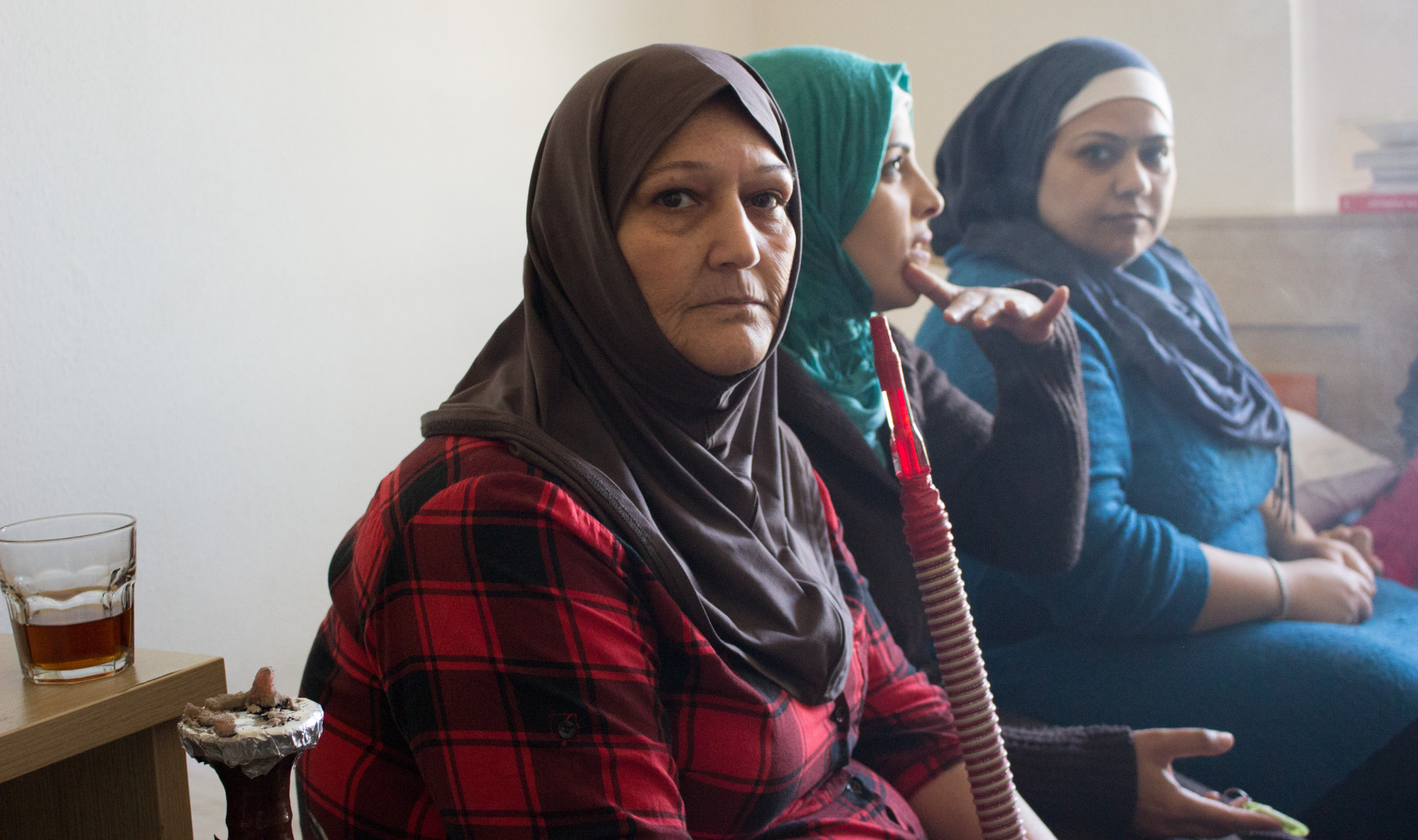
The disparities carry over to their housing arrangements. Hussein lives at Sindos, a dormitory-style apartment building for relocation candidates. Her daughter is at Softex, a state-run encampment based in a former toilet paper factory.
“We are so happy here,” Hussein says through an interpreter. “But my son-in-law and my daughter are not happy.”
To make matters worse, Greece’s ongoing financial crisis and bureaucratic inefficiency have delayed processing relocation claims that would settle refugees in permanent homes across the EU. Amid rising nationalism, countries like Hungary, Austria and Poland refuse to accept more refugees, slowing the process even further.
To date, EU member states have relocated only 8 percent of the 160,000 refugees they promised to accept from Greece and Italy in 2015, according to the European Commission. The EU planned to finish relocating all refugees in Europe by September.
With the commission threatening to levy huge fines to force recalcitrant countries to keep their commitment, the EU may be headed toward a showdown that could further strain internal tensions over immigration. If that happens, it’s unclear whether refugees could be forced to stay in Greece even longer.
The ensuing legal limbo has left refugees like Hussein and her daughter with separate options for their short-term housing and long-term futures. For others still waiting for their relocation claims to be processed, even the best accommodations can’t mitigate the purgatory of not knowing when they’ll be able to leave Greece and reclaim their lives.
On the move
Greece’s geographic position as a gateway to Europe has made it a way station for refugees fleeing the Syrian civil war and other violence and instability in the Middle East. Since June 2015, more than one million people have washed up on Greece’s shores after braving a precarious journey across the Aegean from Turkey.
At the same time, Greece continues to reel from an economic crisis more sustained than the Great Depression. The economy has contracted 25 percent since 2008, with a quarter of all Greeks now unemployed. Among Greeks under 25, almost half lack jobs.
These economic challenges have left the country ill-equipped to deal with the largest humanitarian crisis since World War II. And a rising tide of Islamophobia, reflected in the ascent of Greece’s neo-fascist political party Golden Dawn, has made many in the Orthodox Christian country unreceptive to the influx of outsiders.
The EU-Turkey deal seeks to relieve the pressure of illegal immigration on Greece’s infrastructure and to discourage migrants from risking their lives on a dangerous sea voyage. Under the so-called “one-in, one-out” deal, all migrants arriving in the country after Mar. 20, 2016, must qualify for asylum to stay, or risk deportation to Turkey. For every Syrian sent back, another still in Turkey will be relocated within the EU. But that option excludes non-Syrian migrants.
- Read more: Afghan refugees lose out in EU relocation process
UNHCR, the United Nations refugee agency, works closely with the Greek government, mainly managing the placement and accommodation of migrants who qualify for refugee status.
“UNHCR’s goal is to have all [camps] closed and have all people residing in apartments,” says Liene Veide, an agency spokesperson. “But until this happens, we will keep working closely together with our partners to ensure that the most vulnerable persons are the first ones to be accommodated in apartments.”
Veide is referring to residents like Alia Habesh, a 25-year-old mother of five from Aleppo now living at Sindos. In Syria, her husband was a tailor and she embroidered wedding gowns. But as Kurds, they were persecuted.
They fled in 2012.
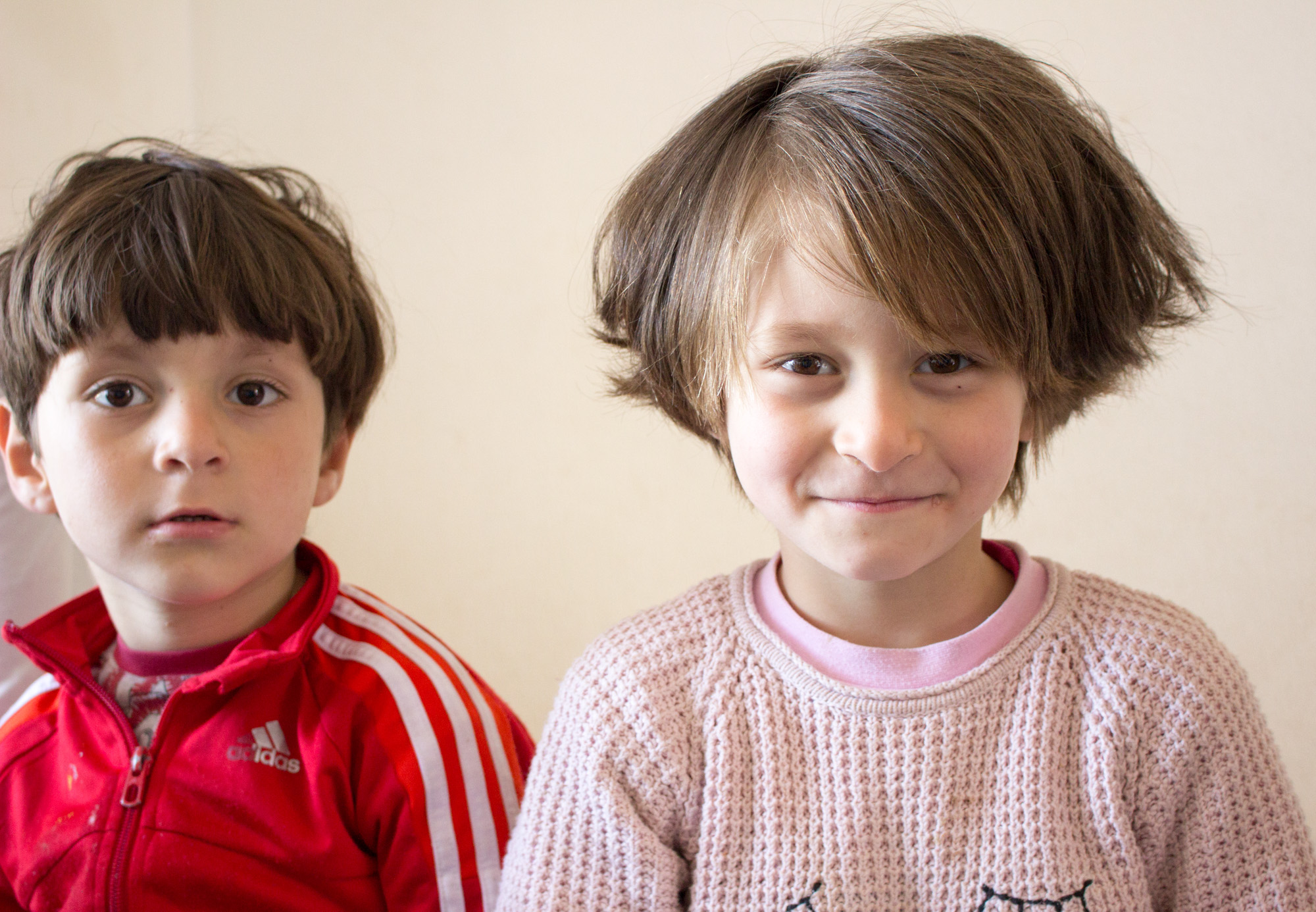
Habesh and her family spent the next four years bouncing across borders, getting detained several times. Eventually, they wound up in Turkey. By then, Habesh’s husband had contracted tuberculosis. They couldn’t speak the language or find work. Venturing to Europe through Greece seemed like the only option.
“I would rather die in the sea than stay in Turkey,” Habesh’s husband said at the time.
The family made six attempts to cross the Aegean into Greece. Each time, the Turkish coast guard arrested them. On the seventh try, they succeeded. They arrived in Greece just days before the EU-Turkey deal kicked in, entitling them to relocation benefits.
Authorities put Habesh’s husband in the hospital for six months so he could recover and started the rest of the family on treatment.
Greece has treated them well, Habesh says, but they can’t stay here — she and her husband need jobs to support their children.
The family has lived at Sindos since last August, awaiting news of their new home since their relocation interview in December. Habesh hopes for assignment to Luxembourg or Germany. She wants to settle somewhere where she and her kids can go to a good school.
Sindos caters especially to vulnerable families like Habesh’s with medical conditions that make camp life too risky, says Katerina Goula, a project manager with Solidarity Now, the Greek non-profit that runs the site. Unlike in many camps, residents at Sindos do their own grocery shopping and cook their own food. The facility is designed to cater to their physical and psychological needs.
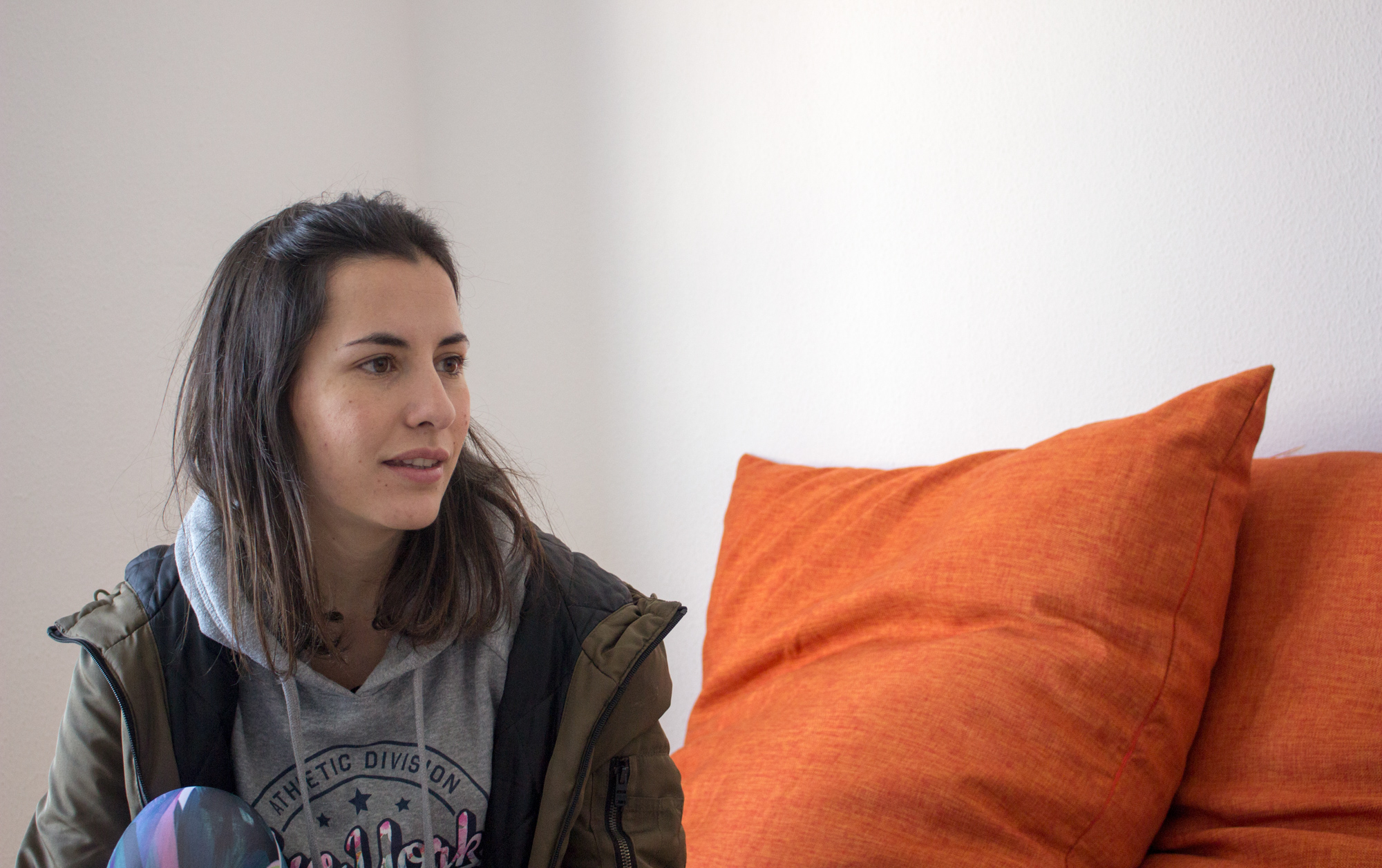
“After a while, they start feeling more secure, and they start focusing on their lives a bit more,” Goula says. “As time goes by, and they wait and they wait and they wait, they start feeling nervous once again because they want to move on.”
Habesh and her kids still succumb to coughing fits, but they’re almost cured. Their psychological scars may take longer to heal. Habesh looks happy, but she still hasn’t quite accepted their current home.
“I still feel like I’m living in a tent on the border,” she says.
One City, Two Visions
Determining how best to speed the EU relocation process by the September deadline is “the million-dollar question,” according to Veide of UNHCR. Each participating EU member state has its own procedure and timeline for verifying refugees’ stories. For its part, Greece requires multiple interviews during the registration process, which may be duplicated by the receiving country.
“We fully understand the need of ensuring state security,” Veide says. “They have to crosscheck all facts and be very clear [about] what persons they are relocating to their countries.”

Some of the worst bottlenecking takes place in Greece. Unlike in some non-European countries where UNHCR operates, the agency acts here in a supportive rather than administrative role, Veide says. And progress with the Greek authorities remains slow.
“We recommend and we suggest, and we have raised some issues numerous times. But we cannot really jump in and start doing things. We have to wait for the government,” she says.
The Greek Ministry of Migration did not respond to a request for comment.
UNHCR has partnered with the tattooed, progressive mayor of Thessaloniki, Yiannis Boutaris, to identify additional sites for refugee housing. His municipality was the first to accept money from the EU for refugee accommodations, creating a home for unaccompanied minors in the city’s heart. Boutaris continues to advocate for cities to play a larger role in refugees’ resettlement, and he is an outspoken critic of the EU’s handling of the crisis, calling it a “disgrace.”
“We hate the idea of camps. We hate the idea of ghettos. We want [refugees] to be absorbed into the city,” Boutaris says.
His goals align with the diverse, modern European society championed by German Chancellor Angela Merkel. But not everyone in this cosmopolitan city, Greece’s second largest, shares that ideal.
During Greece’s four centuries of Turkish rule, the conservative Greek Orthodox Church emerged as an intrinsic part of national identity. Today, 98 percent of Greek citizens still identify as Greek Orthodox, and the government appoints church leaders. While many Greeks have worked hard to welcome the refugees, many more remain wary of Muslim outsiders.
In Thessaloniki, that tension between a multicultural, secular future and a traditional, “Greece for Greeks” past has created rifts between Boutaris and his political foil the Metropolitan Anthimos of Thessaloniki, the region’s Orthodox bishop.
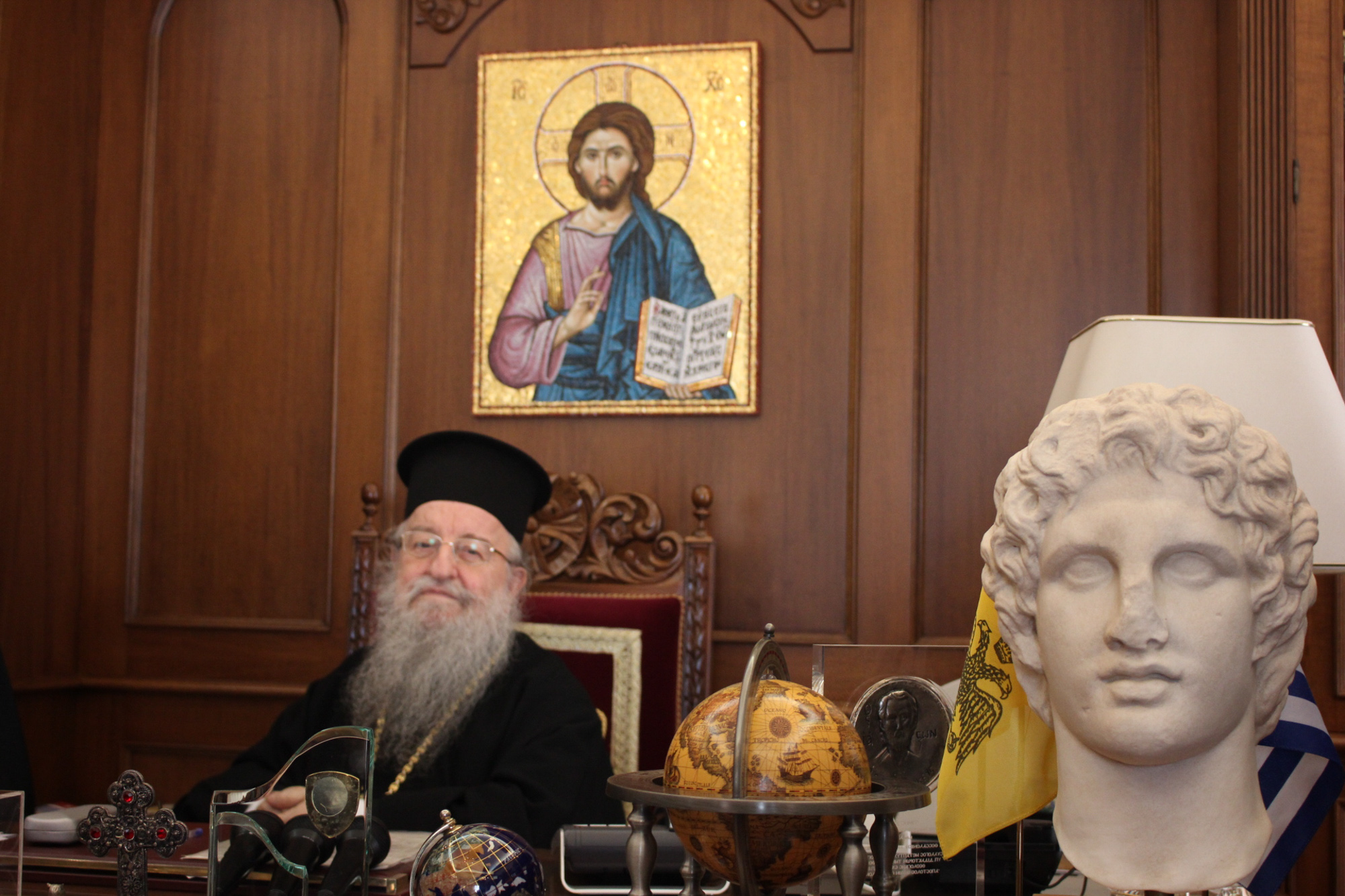
But even the Metropolitan has conceded the state’s response to refugees was not what it should have been.
“All these problems happened suddenly and found us unprepared. We did what we could under the circumstances,” he says. “Still, there aren’t any complaints regarding the services provided for their basic needs.”
The Waiting Game
Of the refugee accommodations in Greece, Elpida Home is the five-star hotel version. Its name means “hope” in Greek. Located about 20 minutes outside Thessaloniki, the facility was previously an abandoned clothing factory. It was renovated and opened in June 2016 by Canadian businessman Frank Guistra and American real estate investor Amed Khan.
Large, airy rooms branch off a wide central corridor. Still under construction, the facility currently hosts 140 refugees in separate family compartments of no more than six people each. The refugees here are mostly Syrians, Iraqis and Kurds who are awaiting relocation or family reunification.
Bright murals, 3D art and knitted patchwork blankets fill the white walls. One design, signed “Sonya,” simply says “Broken,” the “ok” painted red. Below, a yellow face smiles through teardrop-shaped eyes.
Elpida operates entirely on private funding. Khan, who previously ran a refugee camp in Tanzania, has supported refugee efforts throughout Greece since 2015. He independently launched Elpida in response to conditions he calls “horrendous.”
“I am not a critic or an agitator, so I just decided to see if I could do better,” he said in an email interview. “We are a startup, so it’s easy for me to build a team focused on humanity, respect and dignity.”
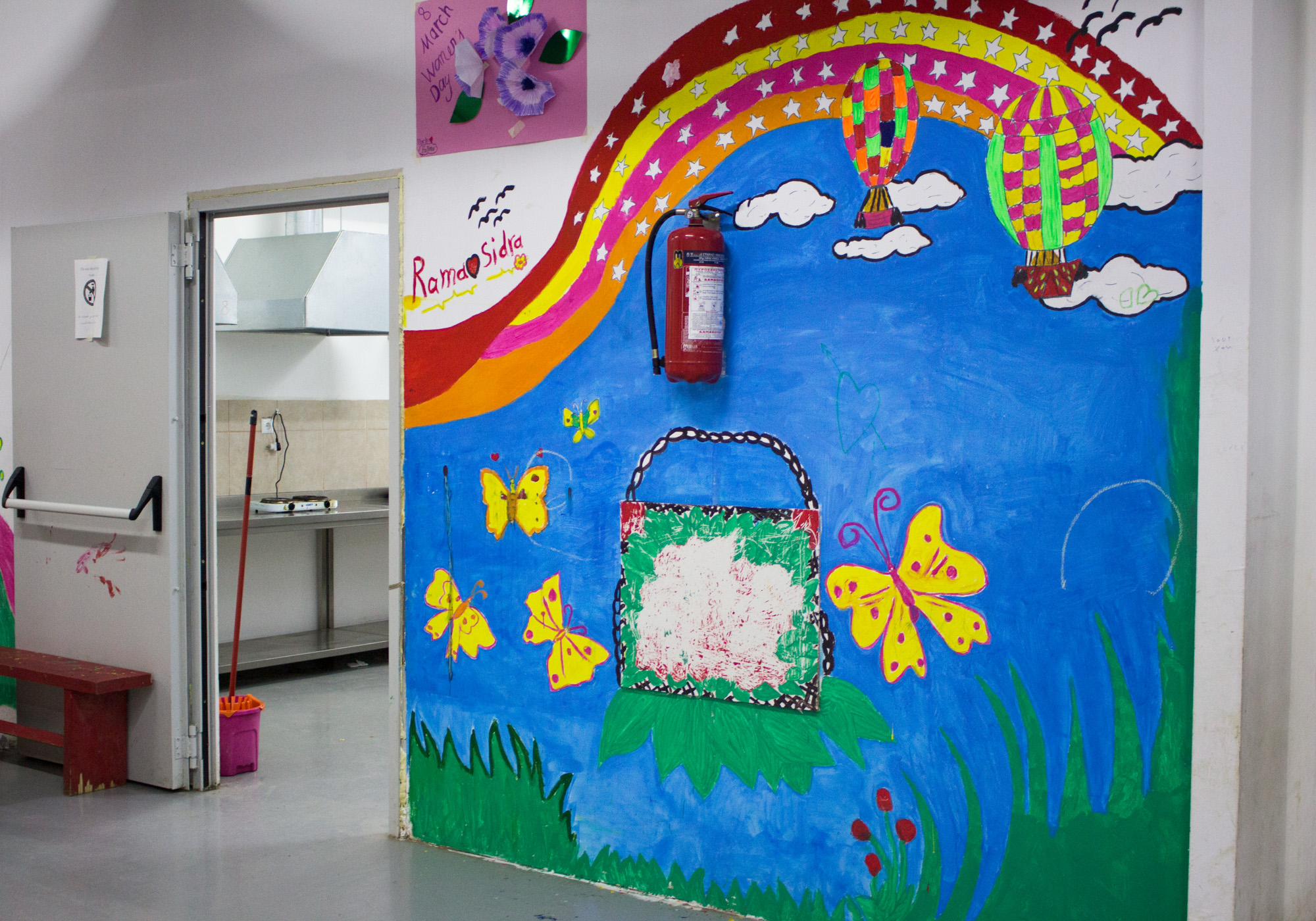
Each room has a locking door, and there are communal facilities like a tea lounge and kitchen. One of Elpida’s most distinctive features is the clothing shop on the ground floor, where organizers have arranged racks of brand-new clothing, shoes and toys sent by donors. Families don’t just take what they want, though. They earn credit through a point system designed to empower residents while simulating the real world.
As a knot of women gather in the hallway chatting and joking, they display a lightness unmatched in the other camps.
One of them, Fatima, declines to give her real name out of fear for relatives still living in Syria.
But she leads visitors back to her room, where her children’s drawings paper the walls. She has six of them living with her at Elpida, all younger than 15. Two more are with her husband in Germany, where they hope to be reunited. They have been separated for a year and eight months.
As conversation turns to her life in Syria, Fatima’s playful affect vanishes. The conflict there was “a war without mercy,” she says through a translator.
An Arabic teacher in Damascus for 17 years, she finally left Syria in 2016 after shuffling for months among smaller cities, searching for haven.
Eventually she paid a smuggler $2,500 for her family’s passage on a boat from Turkey to Greece. The four-and-a-half hour journey felt like four and a half years, she says. The inflatable raft was crammed with 65 refugees. The smuggler designated one person to steer.
Anticipating the flimsy life vests, Fatima bought inner tubes and lashed them together so her children wouldn’t be separated. At the time she thought, “We all live or die together.”
Her four-year-old twins were tired from having been roused from their beds for the pre-dawn journey, but they became scared when they saw her crying out of fear for their safety.
She cries again now, remembering it.
By comparison, Elpida should seem like a respite. Here the positives outweigh the negatives, she acknowledges, but she feels isolated outside the city center. And she’s tired.
Since the borders closed, life has been “endless misery,” she says. “I have never been this strong in my life.”
Fatima plays both parents for her kids, who often cry missing their father. She had her appointment for family reunification in mid-October last year. On Feb. 22, she learned Germany had approved her request. But Greek authorities still haven’t sent her official notification of the assignment, which she needs in order to proceed.
Elpida is a welcoming environment, but she’s aware Greece as a whole isn’t. “Here, people don’t appreciate us,” she says. “They feel that the Muslims are terrorists. We are not terrorists, we are just ordinary people. But they don’t understand that.”
She aches to return home. She keeps her mind occupied most days hoping her homeland will somehow become safe again, though she knows that’s unlikely.
“You cannot forget the pain. The pain is always around,” she says. “For everybody, his country is the best.
“For me, there is no country like Syria.”
































